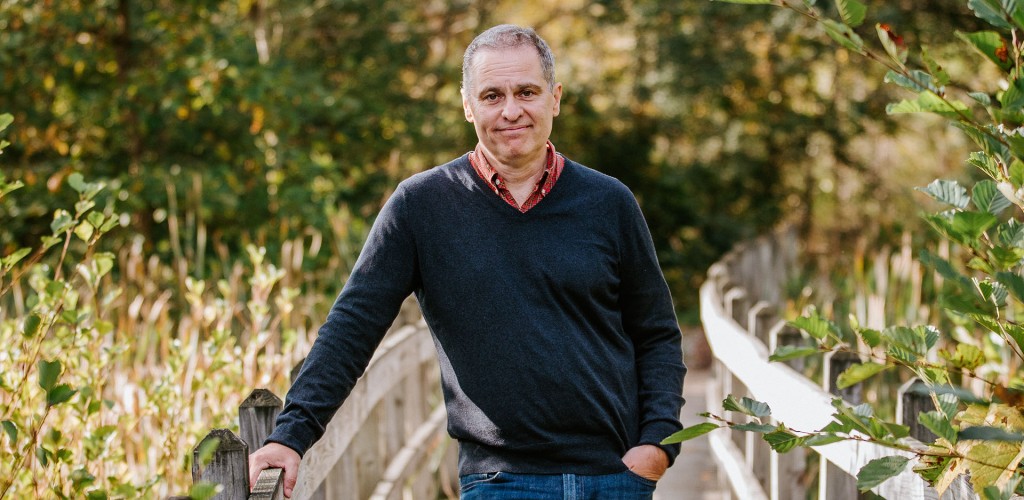Academic focus: Large-scale patterns in biodiversity and conservation
Research summary: I study the ecological and evolutionary mechanisms that drive differences between species and ecosystems, and the implications for conservation planning.
I’m particularly interested in trying to identify general rules for big questions in ecology, such as why there are more species in the tropics than in temperate regions, and why some species are so much more vulnerable to climate change. I’m also interested in the genetic basis of evolutionary change in wild populations, especially in island populations and in puzzling behaviors like choosing a mate. Almost all of my work is based on birds because of the unrivaled depth of ecological information across large numbers of species and the ability to monitor individuals throughout their lifetime in free-living bird populations.
What do you like to do when you’re not working?
I’m happiest being outdoors and exploring nature, usually combining bird-watching with hiking, cycling or kayaking. I love traveling to see new birds and places with friends and family. Everybody in Ithaca has told me I need to “find something fun to do in the snow,” so I’m on the lookout for a new winter pursuit. Are bird-watching and ice hockey compatible?
What are your current outreach/extension projects?
Engaging the public with science and nature, and understanding how to influence how people think are important aspects of my work. I’ve been lucky to work in some of the world’s biggest natural history museums so have spent a lot of time developing new exhibitions on topics like human evolution, cell phones and epidemic diseases. It’s taught me a lot about what it takes to get really big public audiences excited about topics like climate change.
One of the reasons I came to Cornell is the Cornell Lab of Ornithology is arguably the world leader in citizen science, bringing together over a billion observations to map the Earth’s biodiversity at an unprecedented scale. I can’t wait to make those data useful to communities around the world, and to support a much broader audience engaging with nature.
What are three adjectives people might use to describe you?
That’s not really a question for me, but in my mind I like to imagine: strategic, driven, supportive.
What (specifically) brought you to Cornell CALS?
I’m a strong believer that to tackle the big questions in science and society we need a multidisciplinary approach, combining traditional sciences with information technology, social sciences and economics. Cornell CALS is one of the few groups in the world with excellent research across that full breadth of disciplines, combined with the ambition to bring them together to make a difference.
What do you think is important for people to understand about your field?
For a biodiversity scientist this is a key moment with respect to public and political will. I take a hopeful approach and try to convey that we know roughly what it will take to achieve a sustainable balance between human activities and nature, but we now need to act very quickly to do that.
Why did you feel inspired to pursue a career in this field?
I’ve been obsessed with birds since I was a teenager, and that has really been a central thread to my life and career. For me, birds have offered a lens to understand how the world works, and our complicated relationship with the nature. That led me to being interested in fundamental laws in ecology and evolution and, subsequently, to me wanting to address the looming biodiversity crisis.
What’s the most surprising/interesting thing you’ve discovered about Cornell and/or Ithaca so far?
Ithaca is a fun cycle town! (with an electric bike)
If you had unlimited grant funding, what major problem in your field would you want to solve?
For me the big challenge is how to bend the biodiversity loss curve so that species, habitats and ecosystem services begin to recover over the next few decades. That’s a very big project for humanity and requires a combination of science, public will and politics.
And if there is some unspent budget in year five, I’d also really like to know whether ours is the only planet with life.
Learn more about Ian on his faculty profile page or from this Cornell Chronicle article. Learn more about the Cornell Lab of Ornithology.





